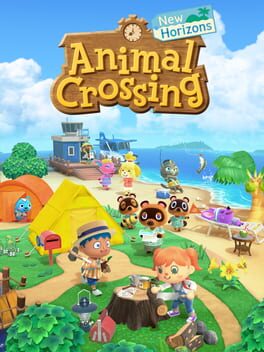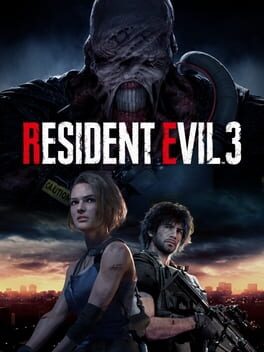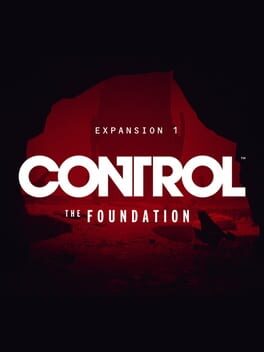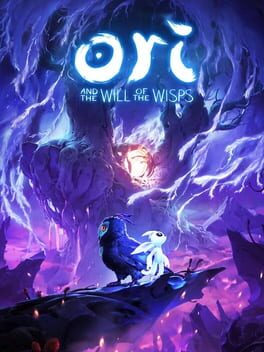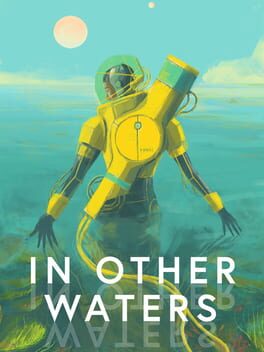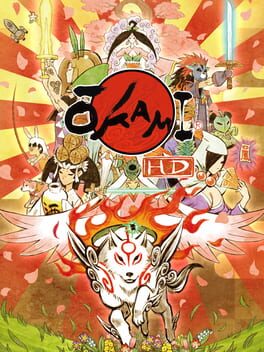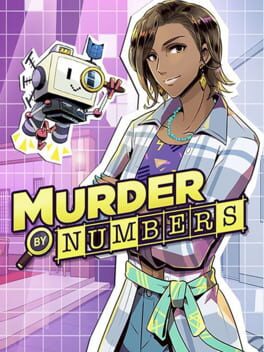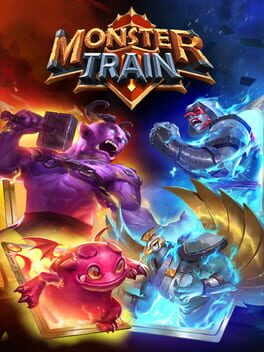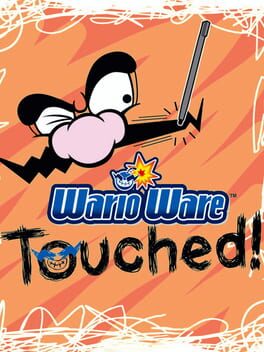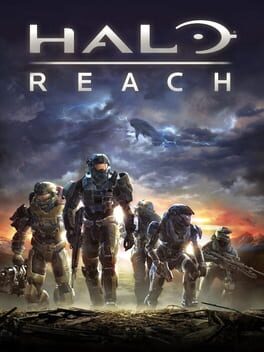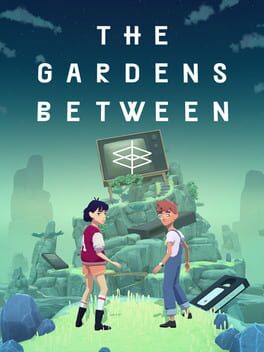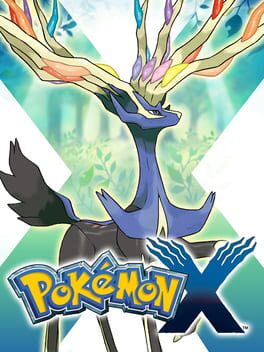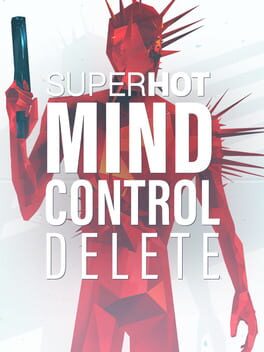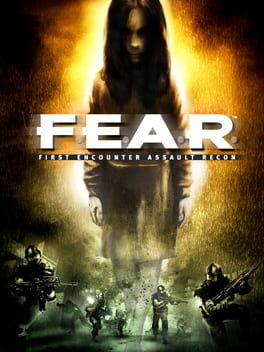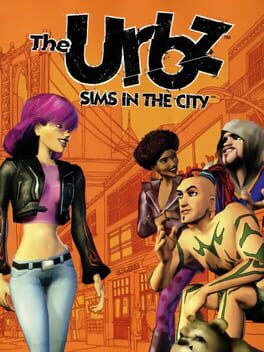mnemos
I haven't finished this. I don't even know what it means to finish an Animal Crossing game, unless you're like my old roommate who collected every single item in New Leaf. I probably won't do that, but I have played for over 100 hours now so hopefully that counts for something.
I don't think this is the ideal version of Animal Crossing. It's leaner than New Leaf in some ways, the crafting system is frequently obnoxious, and Pocket Camp's influence is stronger than I'd like. Still, in the face of everything I like about it, none of that matters; the feeling I get from seeing my favorite villager reading on a bench I placed, surrounded by flowers I planted, can't be matched. It's still the game I fell in love with 20 years ago, lovingly updated.
I don't think this is the ideal version of Animal Crossing. It's leaner than New Leaf in some ways, the crafting system is frequently obnoxious, and Pocket Camp's influence is stronger than I'd like. Still, in the face of everything I like about it, none of that matters; the feeling I get from seeing my favorite villager reading on a bench I placed, surrounded by flowers I planted, can't be matched. It's still the game I fell in love with 20 years ago, lovingly updated.
2020
A bland action game wearing RE2's clothes. It's clear the team behind this understood almost nothing about what made RE2 work. The tension from that game is completely absent, the level design is unremarkable, and worst of all, Nemesis barely even registers as a threat outside of scripted sequences. This is not the remake you were hoping for.
It isn't Control at its finest, but Control on autopilot is still nothing to sneeze at. There are at least two great sequences, one of them musical, and plenty of lore to sift through. It feels less like an epilogue and more like connective tissue for whatever comes next. If the new powers were more significant and the environments more varied it would be essential.
A near masterclass in modern Metroidvania design, slightly let down by reach that sometimes exceeds its grasp. In trying to flesh out its world it loses some of the simplicity of the first game, and the sheer number of abilities can be overwhelming. The story, while still touching, hits so many of the same notes as Blind Forest that they can't help but fall flat this time around. Still, it's a beautiful game, the level design is fantastic, and it has my favorite traversal in any game of this type, including Hollow Knight. Oh, and the music is literally perfect.
2020
Essentially a very cleverly disguised visual novel, though I worry that description isn't giving it enough credit. Imagine Subnautica played entirely on a topographical map, with a heavy dose of climate anxiety and Jeff VanderMeer/China Mieville-esque sci-fi. If the perspective sounds restrictive, don't worry; any doubts have will melt away as soon as you lose yourself in the writing and visuals. The sound design is excellent as well. I could nitpick but it's not worth it in the face of something so unique.
2012
2020
Do you ever feel like a game was made specifically for you? That's the feeling I get from Murder By Numbers - or maybe I'm just underestimating the appeal of a Picross puzzler with surprisingly deft portrayal of queer characters. The writing is the main draw here (though the artwork is quite good as well) and keeps things chugging along even when the puzzles start to drag. Aside from a lack of variety my only other complaint is that despite a generally smart script its portrayal of the police is almost completely noncritical. I understand that would be a heavy lift for a game that's meant to be fairly breezy, but it's also weird for a game with so many queer and nonwhite characters to sidestep the issue completely.
2020
I don't even go for deck-building games like that, but I still have to stop and appreciate how tight this is. It feels like you're constantly discovering ridiculous new synergies between cards and breaking the game, but it's actually just balanced to make you feel that way. Every run feels interesting in a way that not even Slay the Spire can match. I can see this staying in my rotation for a long time.
2004
2010
There are moments where the old magic still works, but just as many where it doesn't. The main issues for me were the story and the visuals. It's clear Bungie were struggling to extract every ounce of power from the 360, and that's understandable, but these days it mostly manifests itself in lots of repetitive, barren-feeling environments. Some of them do retain a unique, desolate atmosphere, though. As for the story, let's just say games have gotten dramatically better at storytelling in the past ten years - I can see where the major dramatic beats are and how they're supposed to land, but they mostly fell flat for me due to poor characterization and exposition. The military fetishization is pretty off-putting as well.
As for the mechanics, the combat mostly holds up, though occasionally you can feel the tension between the design of the older games in the series and the more COD-influenced direction shooters were heading in at the time. In some ways it feels like a bridge between the previous generation of shooters and the current one. Unless you're a fan of the series or have particular nostalgia for the this game, it's mostly of interest as a document of where AAA gaming stood in 2010.
As for the mechanics, the combat mostly holds up, though occasionally you can feel the tension between the design of the older games in the series and the more COD-influenced direction shooters were heading in at the time. In some ways it feels like a bridge between the previous generation of shooters and the current one. Unless you're a fan of the series or have particular nostalgia for the this game, it's mostly of interest as a document of where AAA gaming stood in 2010.
2018
2013
I know it's not a fan favorite, but it was the first Pokemon game I finished since Sapphire so it owns a permanent piece of my heart. It's the game that renewed my interest in the series after I drifted away from it as a teenager. I'll always remember laying in bed with my boyfriend after he had his wisdom teeth taken out and playing this in between taking care of him.
2005
I have a lot of memories tied up in this game. It was the first game I downloaded when I discovered piracy (my laptop at the time only had integrated graphics, which should tell you about how well that went) and I spent what seemed like the longest summer playing and replaying it when it was finally released for Xbox 360. All of that's why it's probably so hard for me to wrap my head around the fact that it's fifteen years old now; in my head it's still the fancy PC shooter just out of my reach (see also: Crysis), and I expect it always will be to some extent.
Anyway, as for the actual game, it runs reasonably well on modern hardware - there's a fix you need to download to make the engine play nice and I had to modify the FOV to something that didn't make me sick, but otherwise you're golden. When I first booted it up I was shocked at how badly the visuals have aged; character models look like they're relatives of PS1-era Lara Croft, and no matter how good the lighting was for the time, the environments look incredibly rudimentary today. They all bleed together so much that it's easy to get turned around and end up aimlessly wandering through the same two identical hallways for fifteen minutes at a time. This isn't exactly helped by the fact that most of the game takes place in the same office building. It's fair to say that whatever appeal this game had as a graphics powerhouse has long since faded. The story is a mixed bag. Personally it didn't do much for me, and the scares barely even registered as scares anymore, but there is a certain B-movie schlock to it that I'm sure certain horror fans will like.
If all of this is sounding awfully negative, that's because I haven't gotten to the one part of the game that's actually aged well: the combat. FEAR's gunplay is its single saving grace, and the only reason I finished my most recent playthrough. It has a kineticism and sense of speed to it that still stands out, the way enemies' bodies crumple as you fire at them in slow motion is incredibly satisfying (the audio design deserves a quick nod here as well), and to top it all off the AI is surprisingly solid. It's hard to overstate just how this one element elevates the rest of the game. Is it enough to recommend now, fifteen years later? As long as you're prepared for what you're getting yourself into and you're still interested, I'd say it's worth a shot; and if you do decide to play it, I guarantee you'll like the combat.
Anyway, as for the actual game, it runs reasonably well on modern hardware - there's a fix you need to download to make the engine play nice and I had to modify the FOV to something that didn't make me sick, but otherwise you're golden. When I first booted it up I was shocked at how badly the visuals have aged; character models look like they're relatives of PS1-era Lara Croft, and no matter how good the lighting was for the time, the environments look incredibly rudimentary today. They all bleed together so much that it's easy to get turned around and end up aimlessly wandering through the same two identical hallways for fifteen minutes at a time. This isn't exactly helped by the fact that most of the game takes place in the same office building. It's fair to say that whatever appeal this game had as a graphics powerhouse has long since faded. The story is a mixed bag. Personally it didn't do much for me, and the scares barely even registered as scares anymore, but there is a certain B-movie schlock to it that I'm sure certain horror fans will like.
If all of this is sounding awfully negative, that's because I haven't gotten to the one part of the game that's actually aged well: the combat. FEAR's gunplay is its single saving grace, and the only reason I finished my most recent playthrough. It has a kineticism and sense of speed to it that still stands out, the way enemies' bodies crumple as you fire at them in slow motion is incredibly satisfying (the audio design deserves a quick nod here as well), and to top it all off the AI is surprisingly solid. It's hard to overstate just how this one element elevates the rest of the game. Is it enough to recommend now, fifteen years later? As long as you're prepared for what you're getting yourself into and you're still interested, I'd say it's worth a shot; and if you do decide to play it, I guarantee you'll like the combat.
